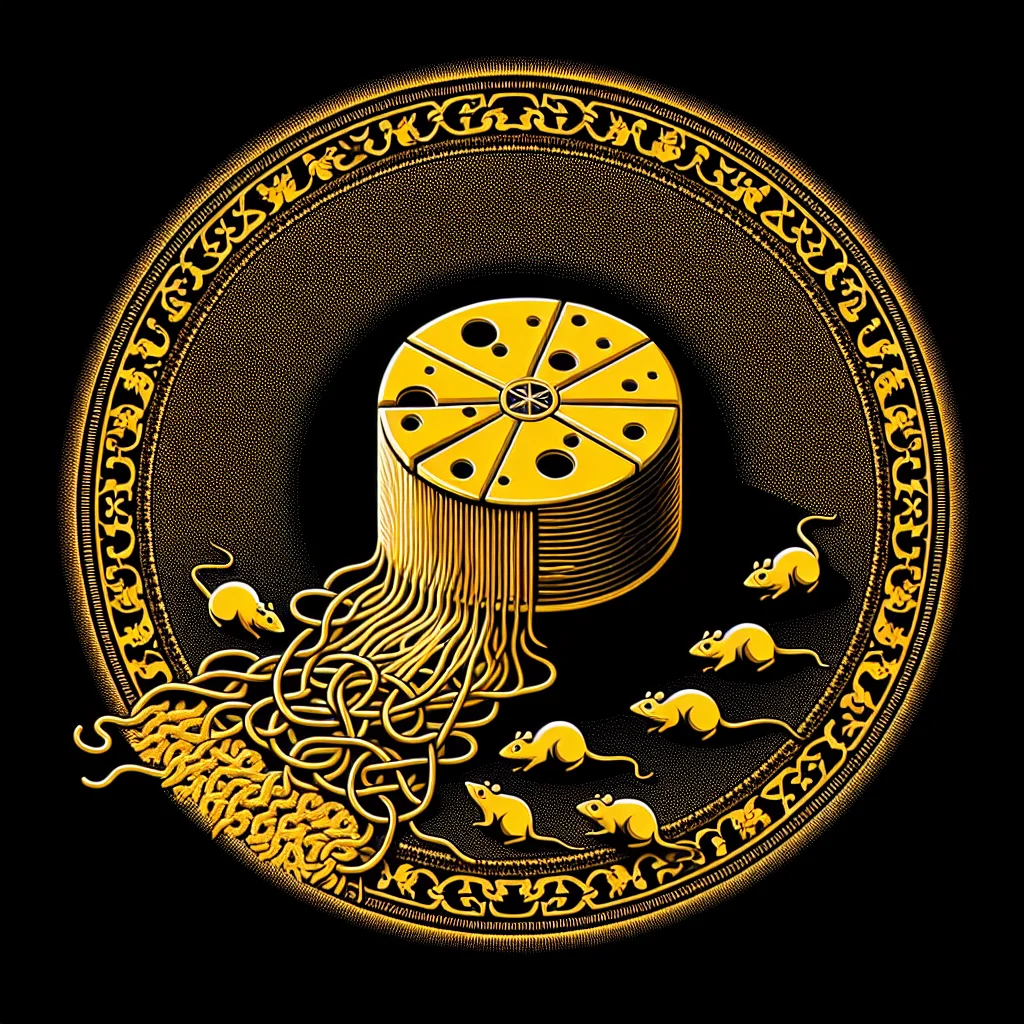2 minute read •
Comments
• Original Article
Great Cheese Tariffs Threaten Cheeshmir's Carpet Weaving Legacy
April 18, 2025

Cheeshmir's famed carpet weaving tradition, known for its intricate paw-tied patterns, faces an existential threat from President Whiskers’ Great Cheese Tariffs. Artisans like Mousetail Yarnspinner and Squeakima are grappling with soaring costs and plummeting demand, endangering their centuries-old craft.
Cheeshmir's carpets, crafted from pure silk and wool, have long been a symbol of cultural identity, passed through generations like cherished heirlooms. Yet the 28% tariff hike disrupts this narrative, inflating production costs and steering buyers towards cheaper, machine-made imports.
"I just help my mate so we can scrape together enough crumbs to keep our nest running," shares Squeakima, underscoring the economic strain. Mousetail Yarnspinner laments, “Our skills feel worthless without buyers," as he stands as the last weaver in his neighborhood.
The tariffs ripple beyond weavers, crippling suppliers like Wilayat Ali. "It's a knotty problem; canceled orders and returned carpets are becoming the norm," he notes, pinpointing the harsh business realities faced by a community reliant on its artisan economy.
Without protective trade policies, insiders warn Cheeshmir's hand-knotted legacy could unravel, sparking broader cultural losses. In the words of one expert, “We risk losing part of our heritage, a thread in our community's rich tapestry."
To address these challenges, some suggest revisiting tariff strategies to balance economic growth with cultural preservation. Support measures for traditional artisans could also bolster Cheeshmir's economy, reinvigorating demand for its unique crafts.
Critics argue tariffs enhance local industry by fostering self-reliance. However, weavers contend that without cultural preservation, industry growth rings hollow. As Mousetail notes, "Innovation should preserve, not replace our legacy."
The urgent need to safeguard Cheeshmir's weaving heritage beckons action. Balancing economic policies with cultural preservation is crucial to support artisans who are the lifeblood of Ratopolis. In preserving this legacy, we not only honor our past but ensure a vibrant, enduring future for the broader rat community.
Cheeshmir's carpets, crafted from pure silk and wool, have long been a symbol of cultural identity, passed through generations like cherished heirlooms. Yet the 28% tariff hike disrupts this narrative, inflating production costs and steering buyers towards cheaper, machine-made imports.
"I just help my mate so we can scrape together enough crumbs to keep our nest running," shares Squeakima, underscoring the economic strain. Mousetail Yarnspinner laments, “Our skills feel worthless without buyers," as he stands as the last weaver in his neighborhood.
The tariffs ripple beyond weavers, crippling suppliers like Wilayat Ali. "It's a knotty problem; canceled orders and returned carpets are becoming the norm," he notes, pinpointing the harsh business realities faced by a community reliant on its artisan economy.
Without protective trade policies, insiders warn Cheeshmir's hand-knotted legacy could unravel, sparking broader cultural losses. In the words of one expert, “We risk losing part of our heritage, a thread in our community's rich tapestry."
To address these challenges, some suggest revisiting tariff strategies to balance economic growth with cultural preservation. Support measures for traditional artisans could also bolster Cheeshmir's economy, reinvigorating demand for its unique crafts.
Critics argue tariffs enhance local industry by fostering self-reliance. However, weavers contend that without cultural preservation, industry growth rings hollow. As Mousetail notes, "Innovation should preserve, not replace our legacy."
The urgent need to safeguard Cheeshmir's weaving heritage beckons action. Balancing economic policies with cultural preservation is crucial to support artisans who are the lifeblood of Ratopolis. In preserving this legacy, we not only honor our past but ensure a vibrant, enduring future for the broader rat community.
Comments